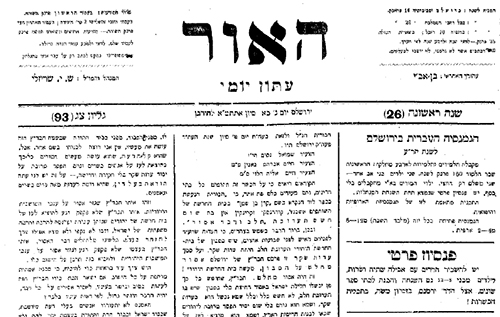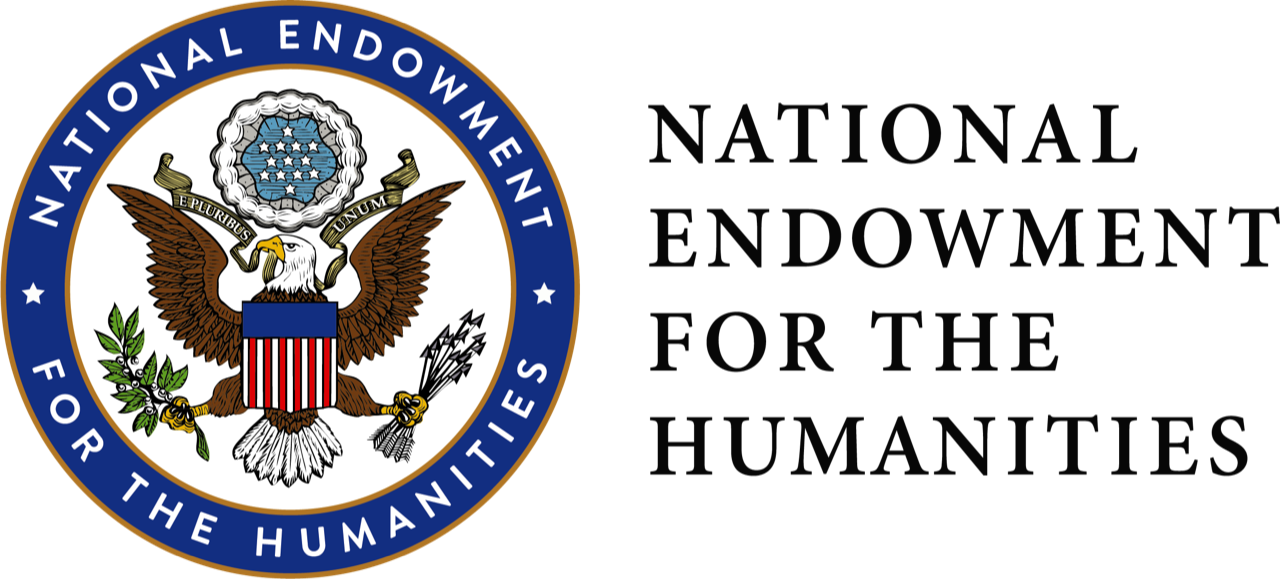
AJS Seminar, December 2020
The Feuilleton Between Culture and Politics

- Location: AJS Conference, Zoom
- Date: December 13-17, 2020
- Participants: Naomi Brenner, Matt Handelman, Brian Horowitz, Elizabeth Loentz, Michal Peles-Almagor, Eli Rosenblatt, Jan Schwarz, Alexander Stern, Shachar Pinsker (chair)
- Organizers: Naomi Brenner, Matthew Handelman, and Shachar Pinsker
- Sponsors: National Endowment for the Humanities
This seminar examined the feuilleton as a critical space for Jewish political debate, social commentary, and literary innovation. A novel form of urban literature and journalism, the feuilleton was popular in the daily press across the globe. Participants explored the feuilleton as the emerging forum for Kulturpolitik, cultural politics, in German, Hebrew, Russian, and Yiddish. Culture and cultural criticism became a dynamic sphere in which individual authors and thinkers could forward their own political and social goals. Feuilletons were a key site for cultural politics and provided ways for Jewish writers to participate in larger Jewish debates and intervene in national debates from which they were otherwise excluded. As politics continue to be played out over new social and cultural media, understanding the origins of cultural politics–and its connection to Jewish authors and thinkers–seems one of the most pressing cultural issues of our age.
December 13-17, 2020 (online)
Participants:
- Naomi Brenner examined feuilletons in early twentieth century newspapers in Palestine, focusing on Itamar Ben-Avi’s adoption of feuilletons as political tools.
- Matt Handelman explored Siegfried Kracauer’s cultural-political battle against the rise of right-wing extremism and fascism in feuilletons for the Frankfurter Zeitung.
- Brian Horowitz focused on how a particular political discourse became intertwined with the feuilleton in the work of the right-wing radical essayist Abba Achimeir.
- Elizabeth Loentz examined early German-language Holocaust poetry published in the late-1940s in the American Occupation Zone, focusing on poems by the German-Jewish writer Gerty Spies.
- Michal Peles-Almagor analyzed Leah Goldberg’s Hebrew feuilletons in 1930s Palestine, exploring how the use of pseudonyms and intertextual exchange operate as literary devices and political commentary.
- Eli Rosenblatt explored the feuilleton and race in the African Yiddish press, focusing on Cape Town and Johannesburg around World War I.
- Jan Schwarz examined the contents, styles and genres of Yitskhok Bashevis’ many feuilletons published under the pseudonym Yitskhok Varshavsky in the Yiddish daily Forverts during World War II.
- Alexander Stern explored tensions in the feuilletons of Walter Benjamin’s One-Way Street between the apparent superficiality of the form and its aptness for expressing the fragmentation of modern experience.
- Shachar Pinsker chaired the session.
This conference has been made possible in part by a grant from the National Endowment for the Humanities (NEH). Any views, findings, conclusions, or recommendations expressed in this conference do not necessarily represent those of the National Endowment for the Humanities.

